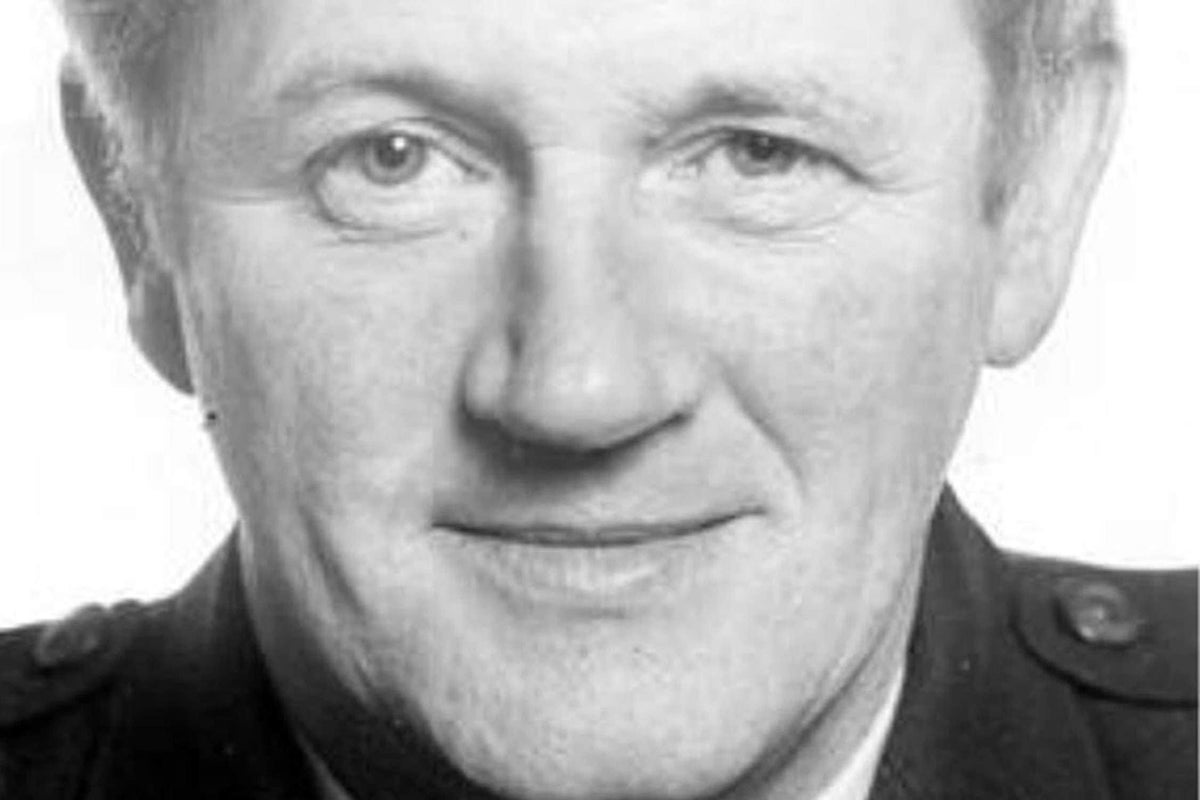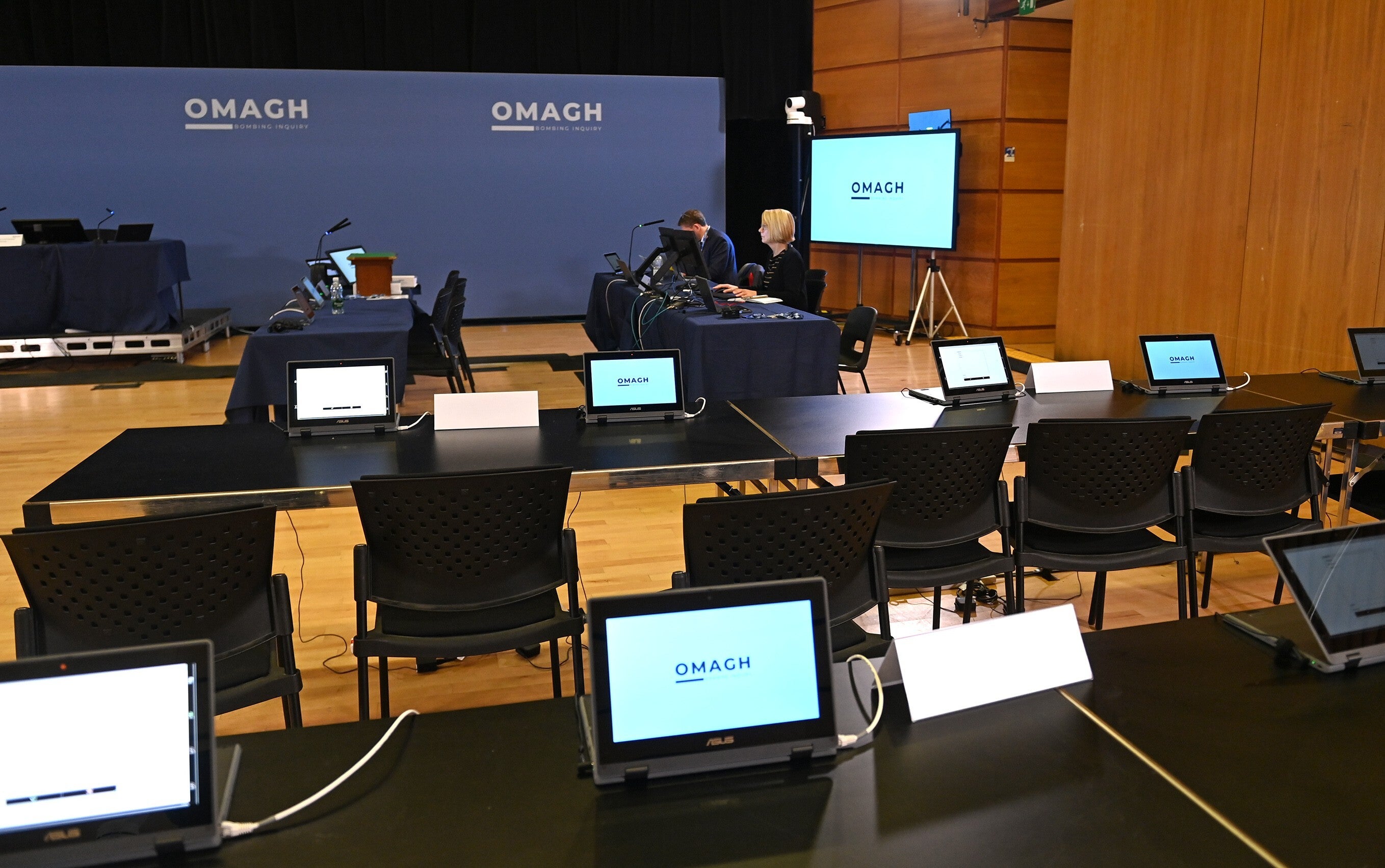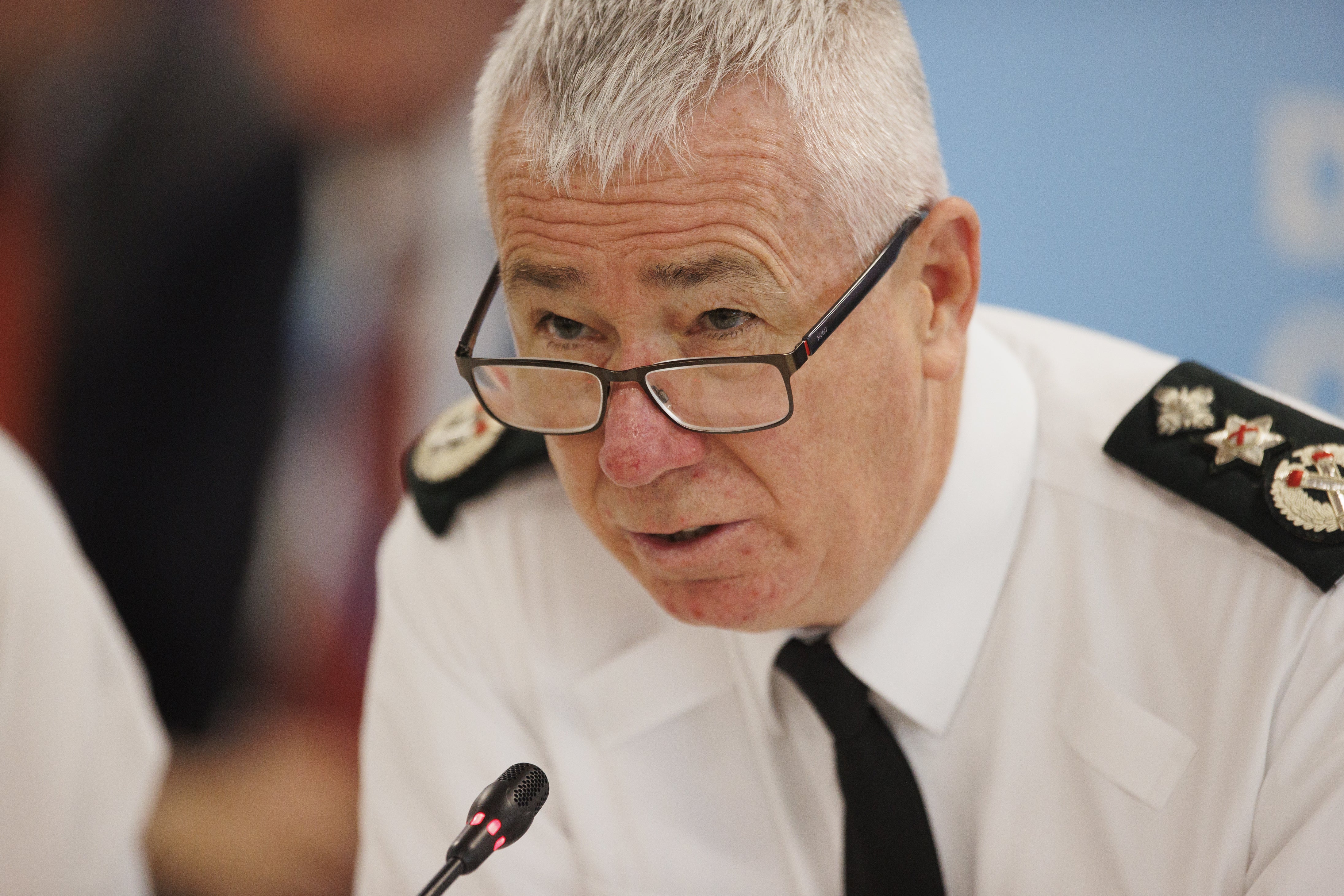
An inquest into the death of a police officer in 1977 is among cases to be effectively delayed for six months while police researchers are diverted to prepare for the Omagh Bombing Inquiry.
A review hearing before an inquest into the death of Sergeant Joseph Campbell, who was shot dead outside Cushendall RUC station in February 1977, was told researchers will be diverted to the inquiry for around six months.
Hearings in the Omagh inquiry resume in June.
The development sparked frustration from coroner Patrick McGurgan and the family of Mr Campbell, including his widow Rosemary, who is 90.

The review hearing was organised after correspondence from the Crown Solicitors Office on behalf of Chief Constable Jon Boutcher.
Ian Skelt KC, counsel to the coroner, said it outlines that the PSNI position that “no work can or will be done on cases other than the Omagh Bomb Inquiry regarding sensitive documentation for a period of at least six months”.
Peter Coll KC, appearing for the PSNI, said the scope of the Omagh inquiry is “extensive” and the force is a core participant and has for some time been working to address the requirements of the probe.
“Unfortunately that has resulted in the PSNI being placed in a position where they are required to make extremely difficult decisions about the allocation of available resources, and unfortunately there has been no option available to the Chief Constable that will not result in delay and adverse consequences in areas of legal work that the PSNI is otherwise involved in and that require consideration of sensitive material,” he said.
“So the police have tried to identify an option that will minimise that delay and disruption, and unfortunately they had to come to the conclusion that if significant additional resources were not temporarily applied and redirected to the Omagh Bombing Inquiry, it could potentially be a number of years before the police would be able to provide the disclosure required to the inquiry in order to open the way for its next evidential hearings to take place.
“As a consequence the Chief Constable directed that as of March 10 of this year, all available researchers with the necessary skills and credentials to undertake sensitive research of the kind required to respond to the inquiry would be directed to that line of work.

“That would be instructed for a period of up to approximately six months from March 10. During that time it will not be feasible for sensitive research to be conducted by the PSNI in respect of other litigation or inquest-type matters.”
He added that the PSNI says it is not funded to deal with the demand in relation to legacy-related work.
Mr McGurgan said this will create a “bottleneck” of sensitive material for a number of cases.
He asked if there is a plan for producing the sensitive material for this inquest after the six-month diversion, and queried why the inquiry is being prioritised over the inquest.
“I just can’t say we will revisit this in six months and then let’s see what is happening – there needs to be something worked out,” he added.
Mr Coll said officials might have to address where things stand at that point in terms of other pressures and cases.
“This is not territory that, unfortunately, sir, that you and I and others are strangers to,” he said, referring to the Legacy Act.
Aidan McGowan, for the next of kin, said Mr Campbell’s family are anxious and distressed at time proceedings are taking, and described the latest development as “unacceptable”.
He said Mrs Campbell and her daughter are watching proceedings remotely and have been to every hearing.
“In our submission it is not a fait accompli, it is a decision for you to make. It is your decision and we further submit that the approach that is being taken is not only generally unacceptable but unacceptable in the particular circumstances of this case in which Mrs Campbell is 90 years old,” he said.
“She has attended every preliminary hearing in this case and she just wants a date for this inquest which was directed 10 years ago in September 2015.
“If the PSNI want extra time to go through their processes, they should make an application to you to that effect, and if that is done then it is open to you to require the attendance of a senior police officer officer to come and attend and give evidence.
“There are a range of options open to the PSNI as to how to approach that, but none of those options, in our respectful submission, involves the PSNI unilaterally deciding which cases it is going to work on and which cases it doesn’t work on, and that is particularly the case in an inquest such as this where collusion is an issue in an inquest.”
Mr Campbell’s family believe elements of the security forces colluded with now deceased UVF killer Robin Jackson to shoot Mr Campbell, a 49-year-old father of eight.
It has been alleged that Mr Campbell, a Catholic officer originally from the Republic of Ireland, was potentially targeted because he had uncovered a loyalist arms-smuggling operation.
A second inquest into the shooting, which the family have long campaigned for, began hearing evidence in March at Belfast Coroner’s Court.
It has since adjourned to allow further time for disclosure and security vetting of historical police and military files related to the killing.
Lawyers for the PSNI and the next of kin are set to make submissions to the coroner on progressing the inquest.
Another review hearing is set to take place on May 16.
People identifying as LGB+ ‘at higher risk’ of self-harm or suicide
US scholar in Thailand jailed pending trial on charges of insulting the monarchy
75 firefighters involved in quelling wildfire in Mournes but blazes continue
Thousands of intimate images found in hacking investigation of former NFL and Michigan coach
‘Giant rat’ interrupts Birmingham council meeting to demand bin strike action
Major Universal theme park to open in Bedford in £50bn economy boost







